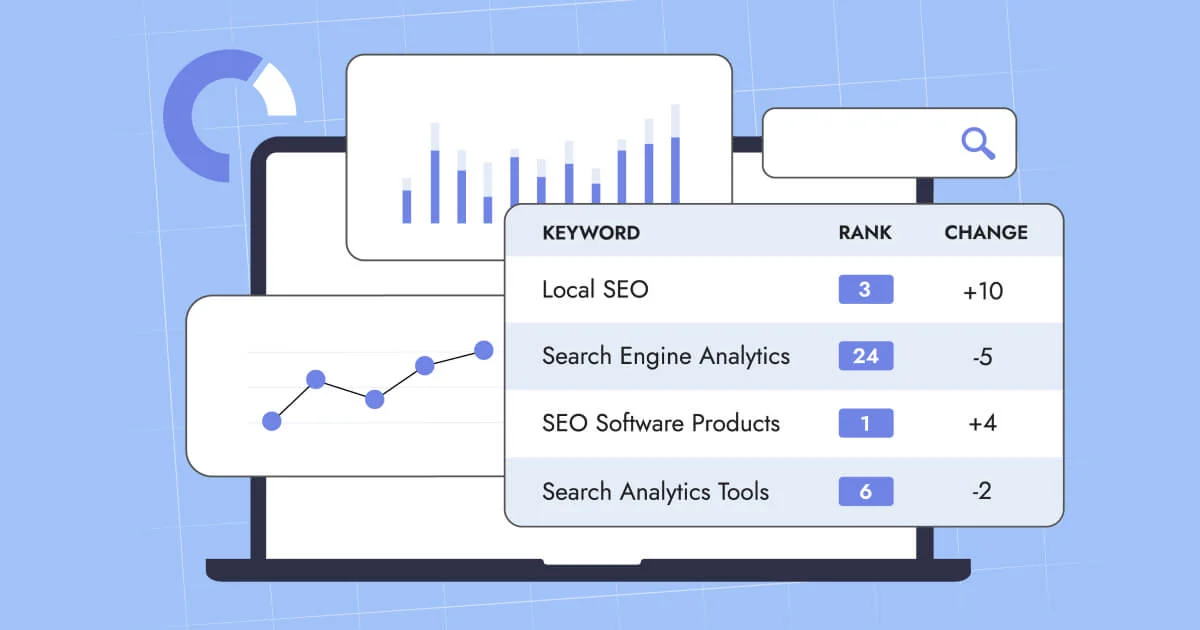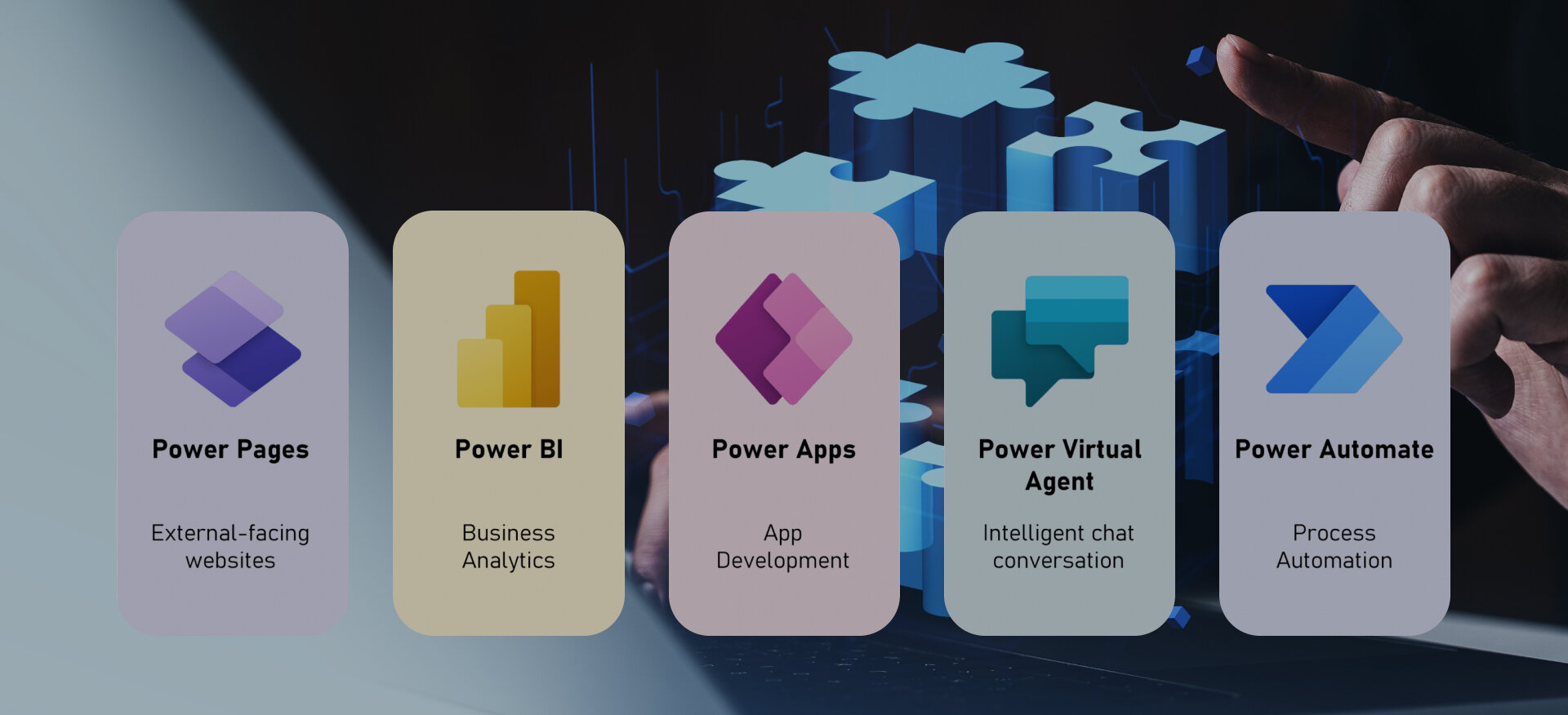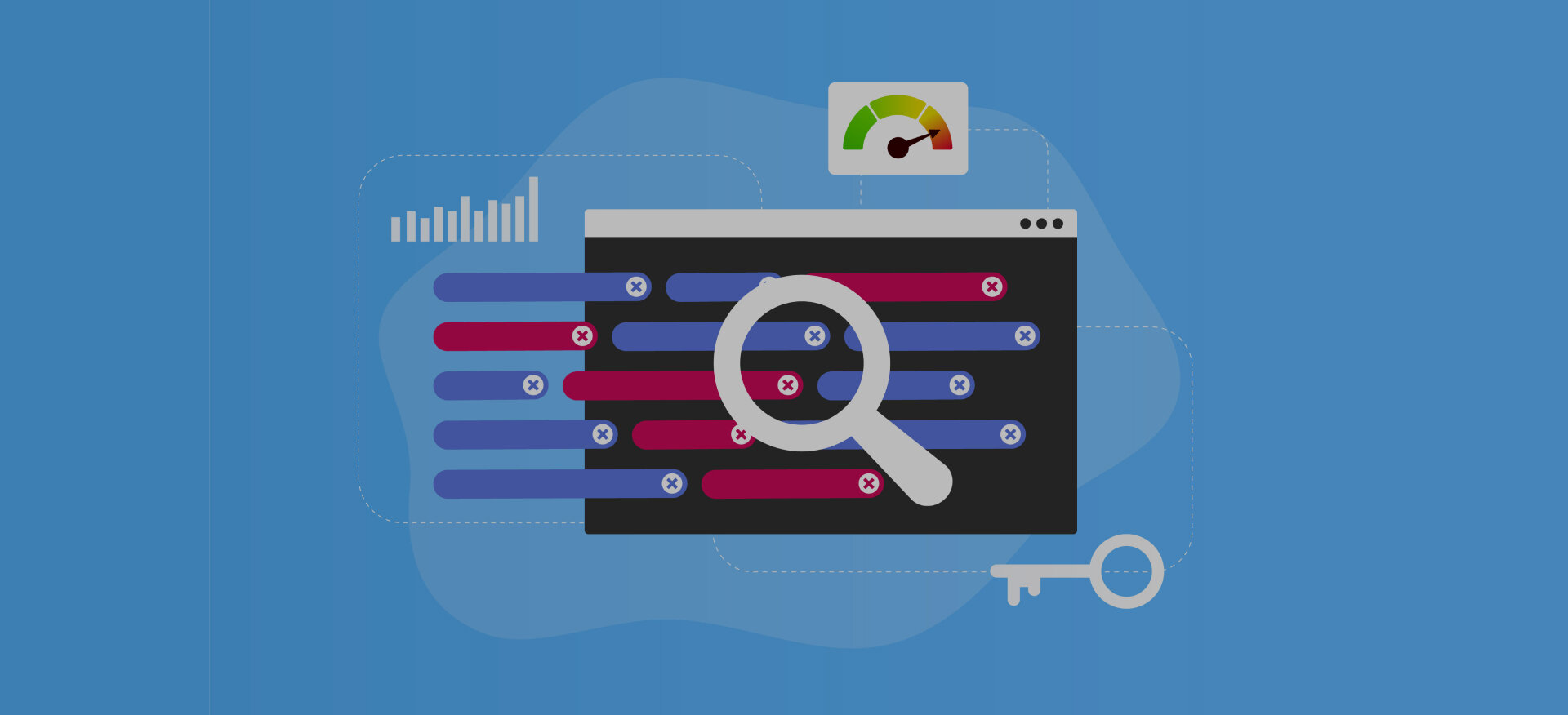Discover the best SEO tools for keyword ranking, Tools, real-time tracking, and competitor insights to boost your searches.
Search engine optimization (SEO) is the backbone of digital marketing, and tracking keyword ranking with a seo keyword ranking tools is a fundamental part of it. Whether you run an eCommerce store, a SaaS platform, a blog, or a local business, knowing where your website stands in Google search results can significantly impact your digital strategy.
Many marketers struggle to find the best seo keyword ranking report tool for accurate, real-time tracking real time keyword ranking, competitor analysis, and historical data. Choosing the right tool keyword reporting tool can streamline your SEO efforts, improve visibility, and help you make data-driven decisions to outperform competitors.
What You’ll Learn in This Guide:
This article explores everything you need to know about keyword ranking reports, the top seo keyword ranking software, including:
- 14 Best SEO Tools for Keyword Ranking Reports
- Why tracking keyword rankings is crucial for SEO with SEO keyword ranking tools.
- Features of the best SEO tools for tracking rankings.
- A detailed comparison of top SEO tools that provide accurate keyword position tracking.
- How to use seo keyword ranking report tool for strategic optimization.
- Common mistakes in keyword tracking and how to avoid them.
- Future trends in keyword tracking and AI-driven SEO keyword ranking software.
By the end of this guide, you’ll know which SEO tool is best for keyword ranking reports and how to maximize your search engine visibility using data-driven insights.
14 Best SEO Tools for Keyword Ranking Reports (2026)
Tracking SEO ranking for accurate details is vital for SEO success. Below is a detailed comparison of the seo Keyword Ranking Report in 2026 that help marketers, agencies, and businesses industires such as oil & gas, real estate and nonprofit and other sectors monitor to their keyword performance with unique features, pricing, and usage insights.
1. SEMrush: The All-in-One SEO Suite
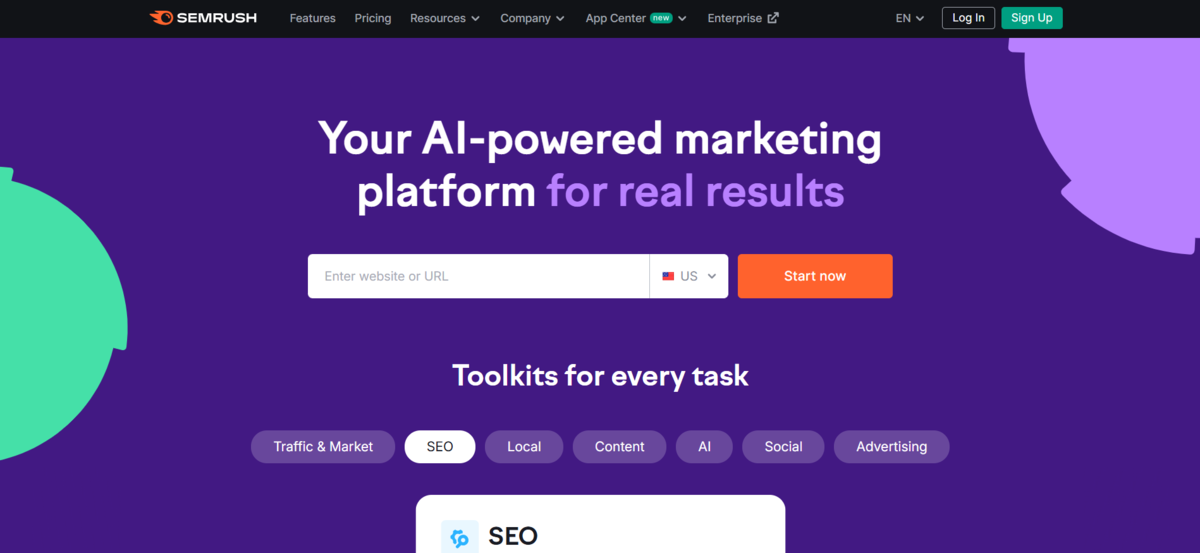
SEMrush is a powerhouse for seo ranking tools used by over 8 million marketers worldwide, renowned for its comprehensive SEO and PPC capabilities. It offers detailed daily keyword tracking, competitive research, backlink audits, and local plus mobile rank tracking across 140+ countries. Trusted by top brands like eBay and Quora, SEMrush delivers integrated insights to fuel data-driven marketing campaigns. If you want a full-spectrum SEO platform that grows with your needs, SEMrush is an excellent choice.
Grow Your Business with SEO Service
2. Ahrefs: Best for Competitor Research

Ahrefs boasts an estimated 3 million users. It excels in competitor backlink analysis and keyword difficulty scoring while tracking rankings in 170+ countries. Ahrefs is favored by SEO leaders such as Moz and LinkedIn for its vast backlink database and intuitive keyword explorer tools. If competitor insights are your priority alongside rank tracking, Ahrefs offers unmatched depth and reliability.
3. Moz Pro: Best for Beginner SEO Users
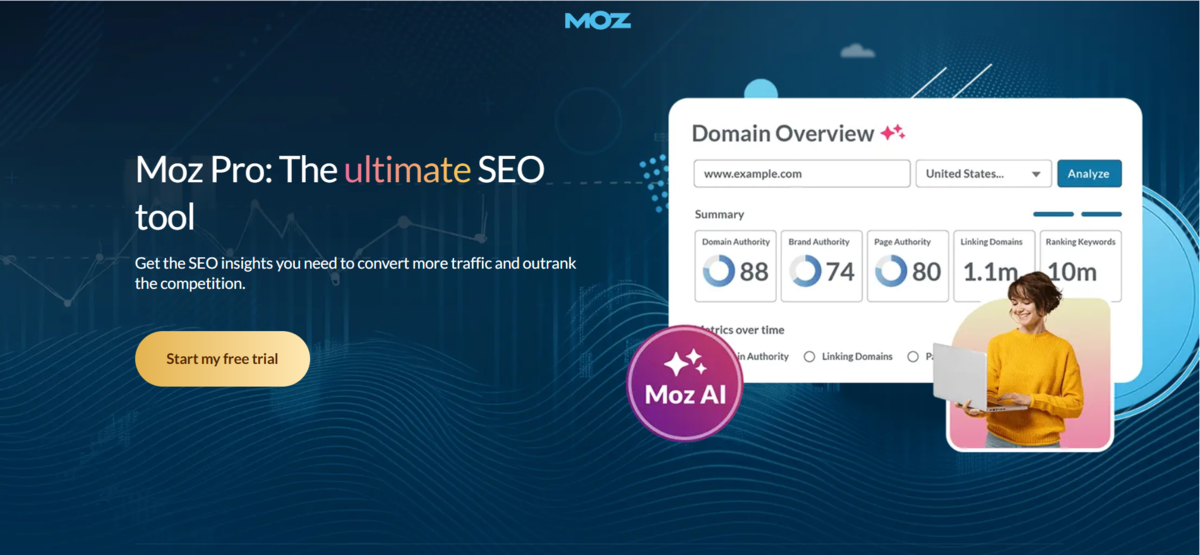
Moz Pro’s easy-to-use platform supports around 1.5 million marketers and small businesses globally. Moz offers beginner-friendly rank tracking, keyword research, and page optimization tools. It covers over 200 countries and has a vibrant community and educational resources, making it ideal for those new to SEO or SMBs scaling their organic growth.
4. Google Search Console: Best Free Option
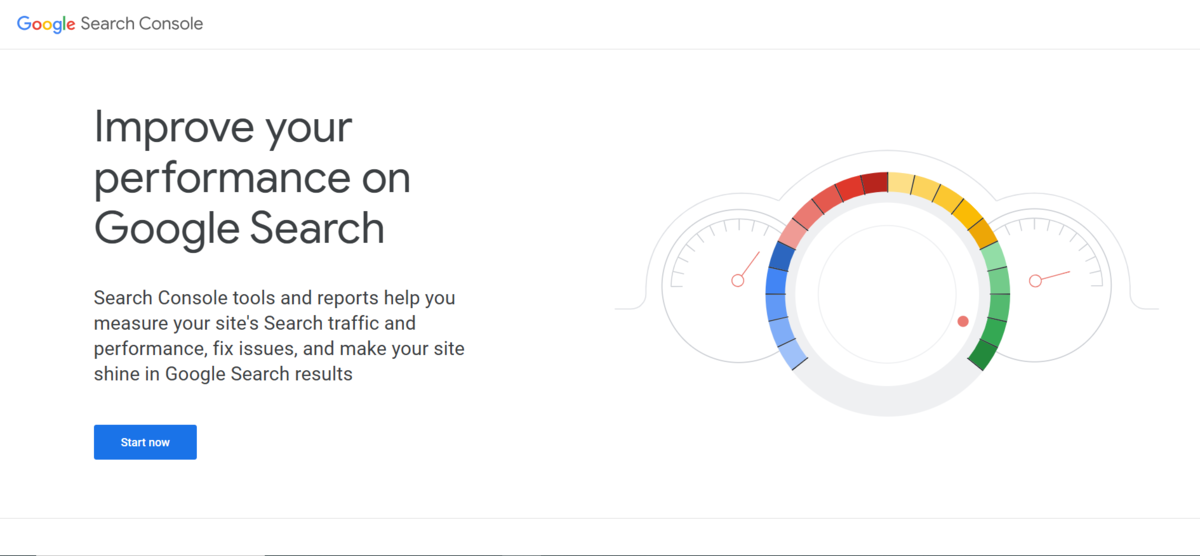
With over 29 million active websites, Google Search Console (GSC) remains the industry’s definitive free tool. It provides direct data from Google on keyword impressions, clicks, and average ranking positions, plus vital alerts for site issues. As an official Google product, GSC offers unparalleled accuracy, and its integration with Google Analytics makes it essential for every SEO toolkit.
5. SERPWatcher: Best for Rank Tracking Simplicity
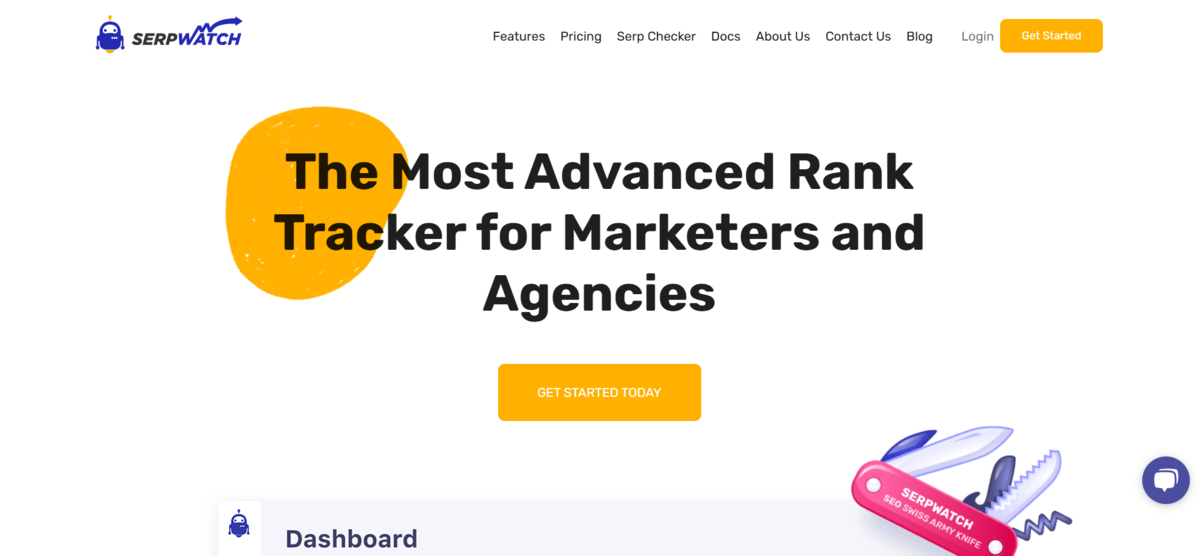
SERPWatcher by Mangools powers over 200,000 users with a clean and simple interface focusing solely on rank tracking. It offers daily keyword updates, ranking distribution visualizations, and shareable progress reports across 170+ countries. This tool is perfect for freelancers and small businesses wanting clear, actionable rank insights without the clutter of overly complex features.
Try Our Free SERP Checker Tool
6. Rank Ranger: Customizable SEO Reporting

Rank Ranger serves thousands of agencies and enterprises with highly customizable SEO reports. It supports multi-engine and device rank tracking in over 100 countries, offers white-label reports, and integrates seamlessly with Google Search Console and Google Analytics, and social media platforms. Agencies looking to deliver branded, automated rank tracking reports to clients find Rank Ranger invaluable.
Run a Free SEO Report For Your Website
7. AccuRanker: Fast and Accurate Rank Tracking
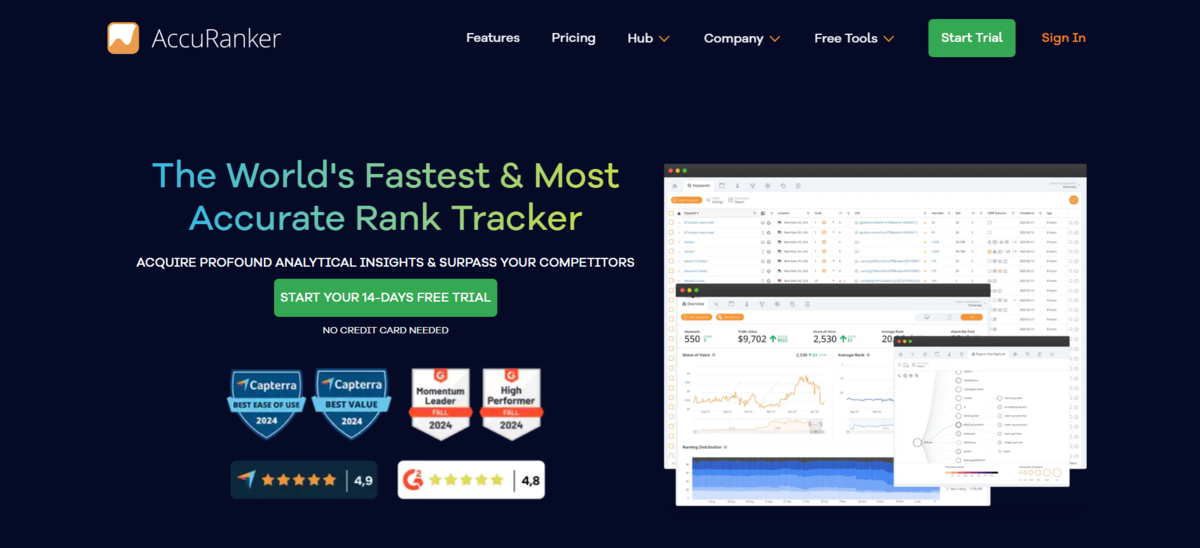
AccuRanker caters to more than 10,000 SEO professionals and agencies who demand speed and precision. It delivers real-time rank updates multiple times daily, with support for SERP feature detection and competitor analysis on Google and Bing, mobile and desktop. Its reputation for fast, accurate data makes it a top choice for agencies and in-house teams managing multiple clients.
Start Tracking Your SERP Positions
8. Serpstat: All-in-One SEO Platform
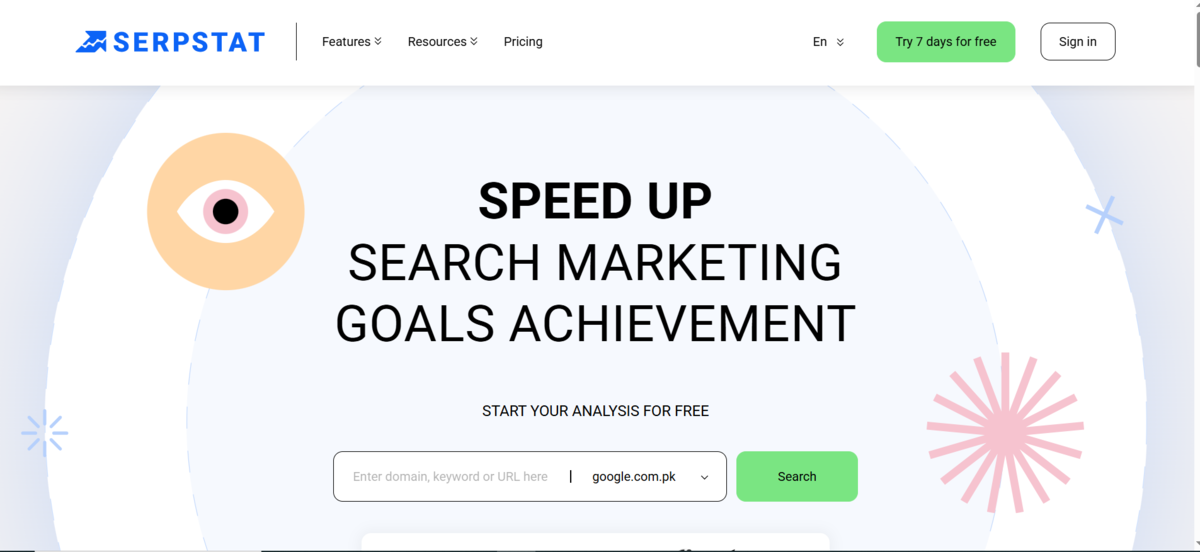
With a user base exceeding 200,000, Serpstat combines keyword rank tracking, backlink analysis, site auditing, and competitor research in one interface. It supports tracking in over 230 countries and languages and offers features like keyword clustering and historical data analysis. SEO professionals valuing integrated data and trend analysis turn to Serpstat for smarter decision-making.
9. SpyFu: Competitor and PPC Intelligence
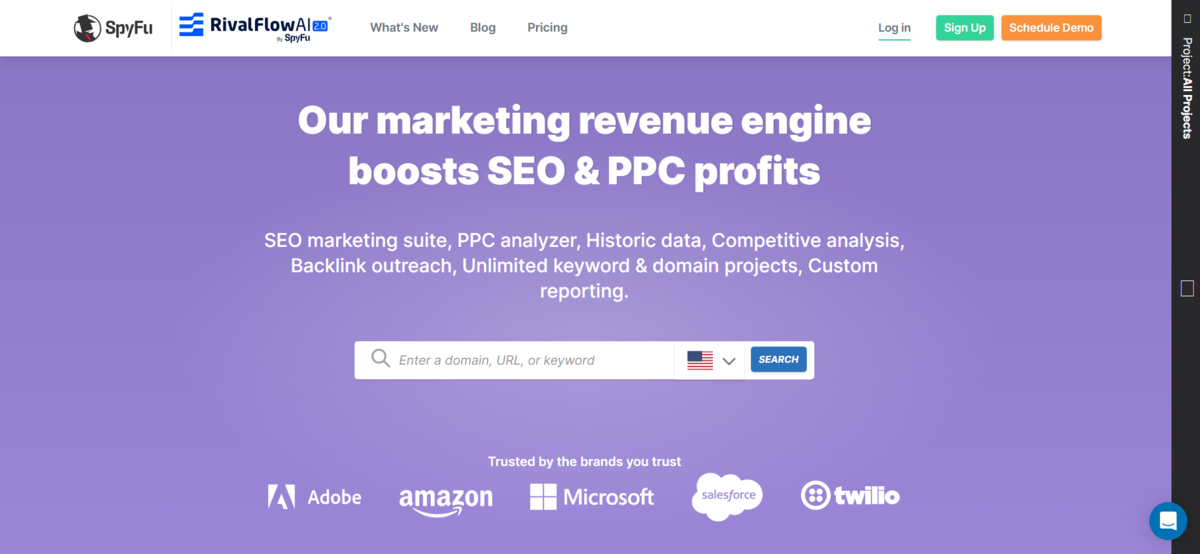
SpyFu, popular among approximately 300,000 SEO and PPC marketers. It offers access to 15 years of historical data and tracks over 800 million domains, making it ideal for marketers who want to blend SEO rank monitoring with deep competitive ad strategy analysis.
10. Google Analytics (with Custom Reports)
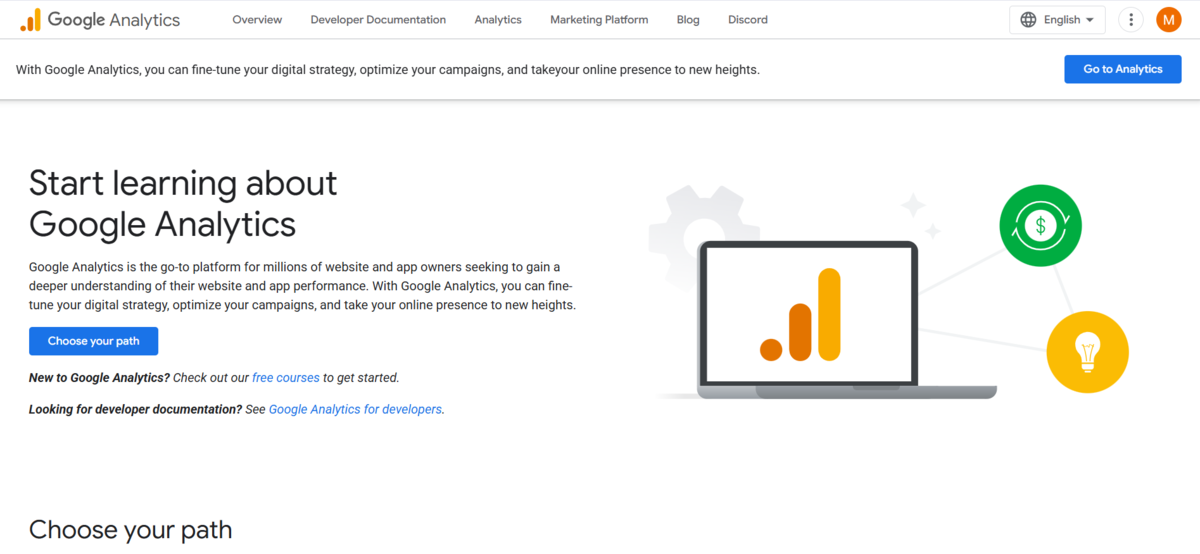
Google Analytics remains the global standard for website analytics, powering over 29 million sites. It offer robust tracking of organic traffic and conversions linked to keyword groups and landing pages. When combined with Search Console data, it bridges the gap between keyword rankings and user engagement, allowing businesses to optimize for ROI beyond just position tracking.
11. AuthorityLabs: Reliable Local Rank Tracking
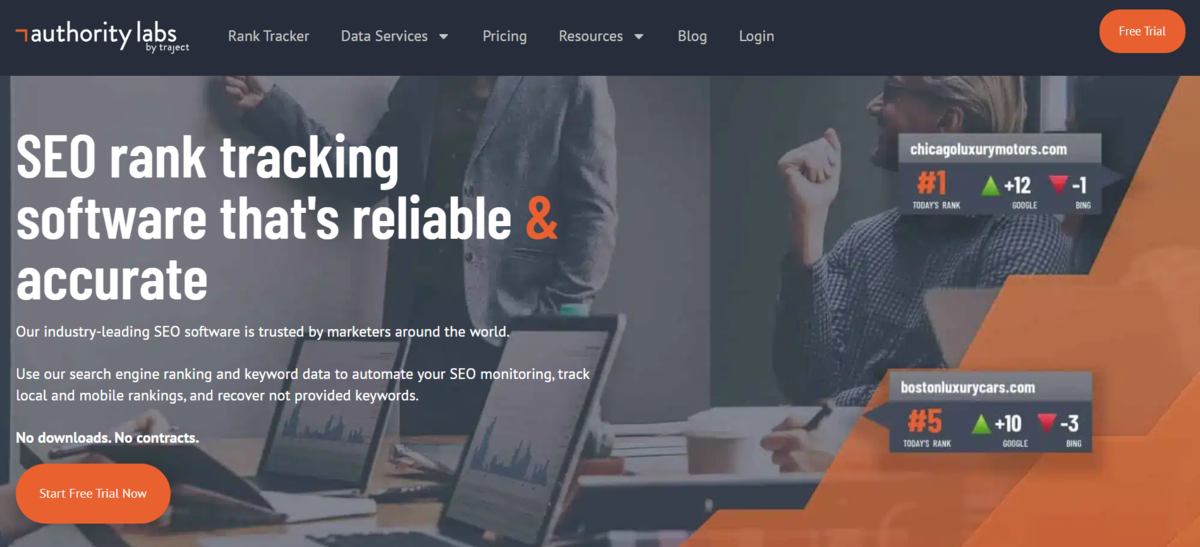
AuthorityLabs serves over 5,000 businesses and agencies, focusing on local SEO. it provides daily rank updates, mobile and desktop tracking, and supports multiple search engines including Google, Bing, and Yahoo. Its white-label reporting and multi-location tracking capabilities make it an affordable solution for small to medium businesses targeting local search visibility.
Increase Local Visibility with Local SEO Services
12. SERP Checker (Check live Google rankings with no login or limits.)
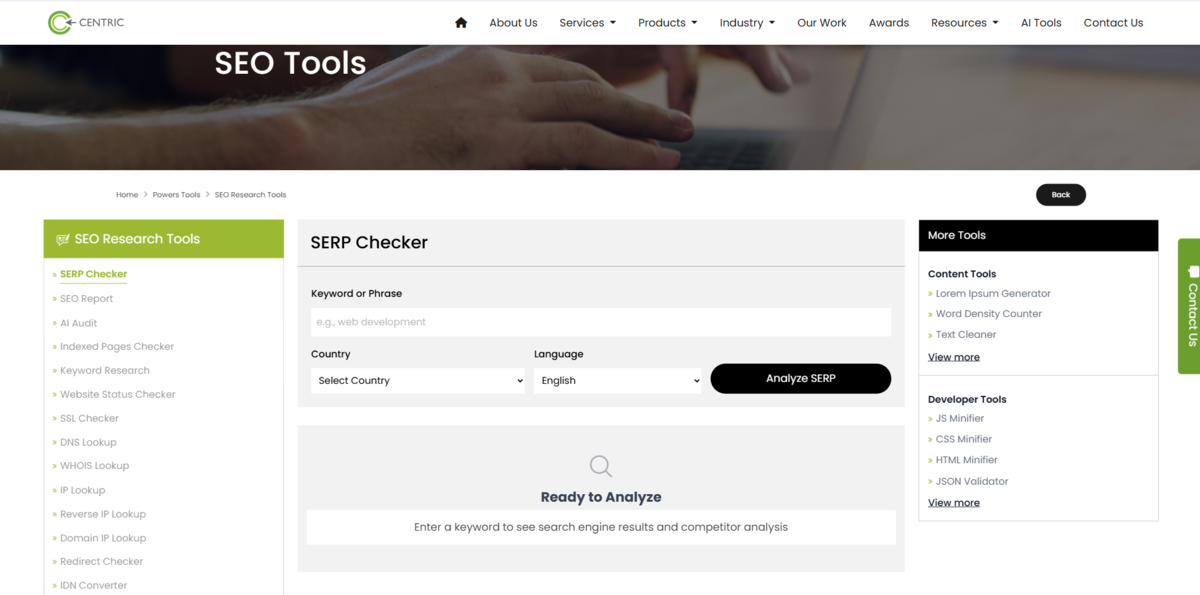
Centric SERP Checker tool allows you to see exact keyword positions (desktop & mobile), view top 10 rankings, in multiple regions. It’s ideal for daily competitor tracking and monitoring ranking changes with unlimited free checks.
Check Your Rankings In Real Time
13. Keyword Research & Reporting Tool
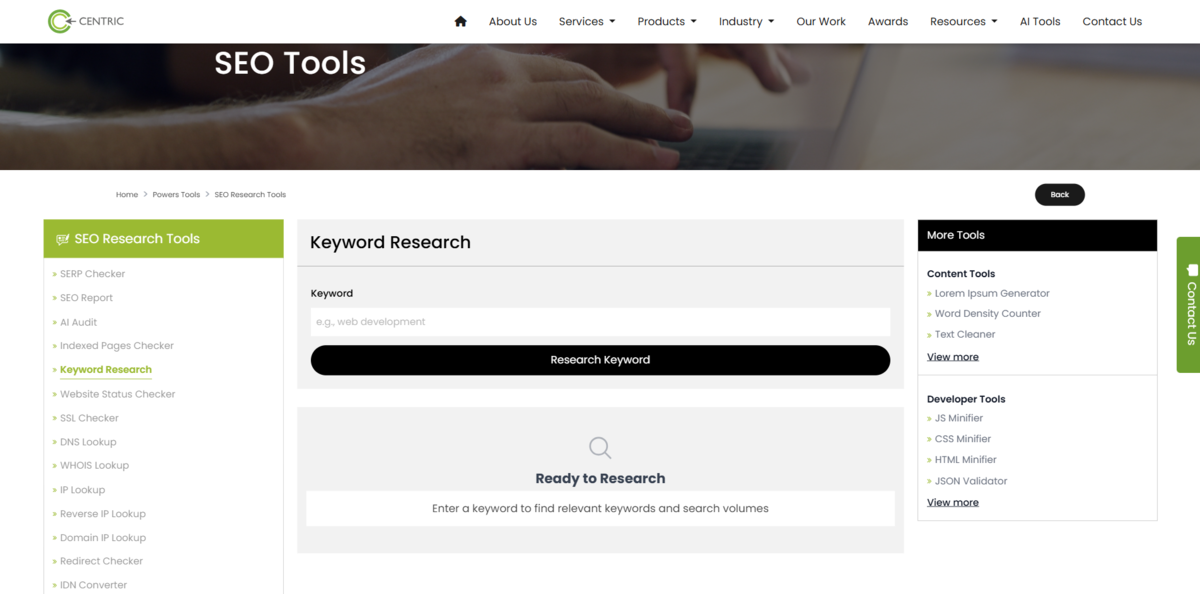
This keyword research tool allows users to enter a seed keyword, like "seo," and quickly generate ten of related long-tail, short-tail and low-competition keyword suggestions. Each keyword comes with valuable insights, including its search volume, competition level, and the total number of results. Totally free and unlimited.
14. SEO Report Generator Tool: 1-Click Access
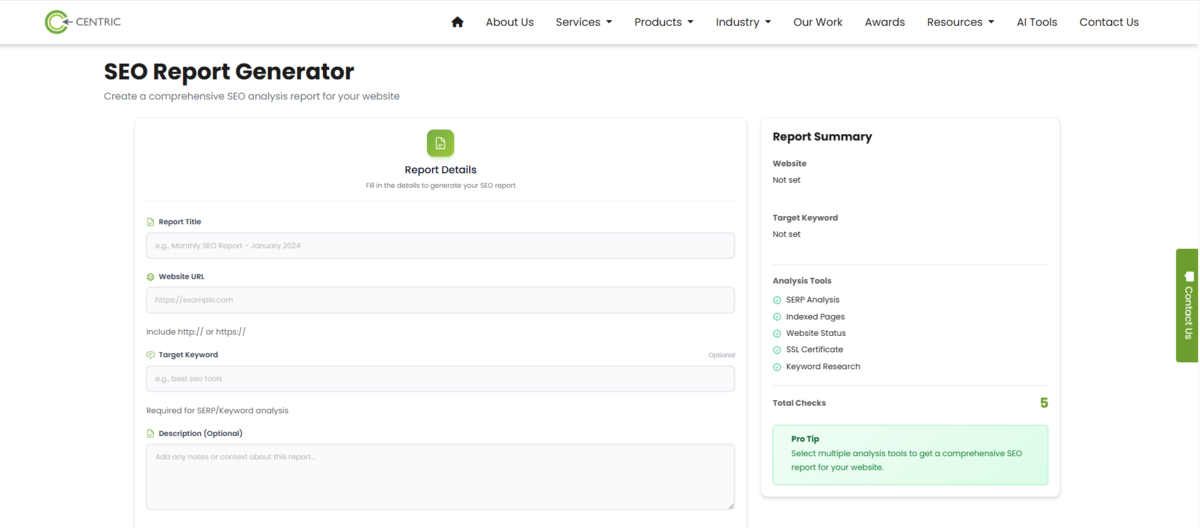
The SEO Report Generator Tool allows you to enter any domain to audit on-page SEO, Core Web Vitals, indexability, backlinks, and keyword rankings. Audit your website daily to track performance, spot issues, and ensure continuous optimization.
Run a Free SEO Report For Your Website
Comparison Chart: SEO Ranking Tools Stats & Pricing
|
Tool |
Unique Feature |
Countries Supported |
Best For |
|
SEMrush |
All-in-One Suite |
Global |
Full SEO & PPC management |
|
Ahrefs |
Backlink & Competitor Research |
Global |
Competitor insights |
|
Moz Pro |
Beginner-Friendly Interface |
Global |
Beginners & SMBs |
|
Google Search Console |
Official Google Data |
Global |
Free & reliable rank data |
|
SERPWatcher |
Simplicity & Shareable Reports |
Global |
Simple rank tracking |
|
Rank Ranger |
Customizable Reports & API |
Global |
Agencies & enterprises |
|
AccuRanker |
Fast & Accurate Real-Time Data |
Global |
Fast data updates |
|
Serpstat |
All-in-One SEO Platform |
Global |
Integrated SEO tools |
|
SpyFu |
Competitor PPC & SEO data |
Global |
SEO & PPC competitor intel |
|
Google Analytics |
Traffic & Conversion Analytics |
Global |
Analytics tied to SEO |
|
AuthorityLabs |
Local SEO & Multi-location |
Global |
Local SEO focus |
|
SERP Checker |
Fast & Accurate Real-Time Data SERP |
Global |
Instant rank checks & SERP analysis |
|
Keyword Research & reporting tool |
In 1 click, 9+ keywords |
Global |
Fast long-tail & question keywords |
|
SEO Report Generator |
Full audit with multiple features |
Global |
Free & reliable Full SEO report |
What Are Seo Keyword Ranking Reports and Why Do They Matter?
A SEO competition ranking tool is a detailed analysis of where your website ranks for specific search queries on Google, Bing, Yahoo, and other search engines. These reports help website owners, marketers, and SEO professionals measure their search visibility, performance, and competitive standing.
A typical SEO keyword ranking report tool includes:
- Keyword Position: Your website’s current rank for a specific keyword.
- Search Volume: The estimated monthly searches for a given keyword.
- SERP Features: If your page ranks in featured snippets, local packs, or video results.
- Competitor Rankings: How your competitors are ranking for the same keywords.
- Historical Data: Trends in keyword performance over time.
- Mobile vs. Desktop Rankings: How your website ranks on different devices.
Why Seo Keyword Ranking Tools Are Crucial for Businesses?
Tracking SEO keyword ranking tools allows businesses to:
- Identify high-performing keywords that drive traffic.
- Track SEO progress over time.
- Discover competitor SEO Strategy and new opportunities
- Optimize content to rank higher in search results.
- Measure the impact of SEO campaigns and algorithm updates.
Without keyword tracking, businesses risk losing search visibility, missing ranking drops, and failing to optimize their digital strategy.
Features of the Best SEO Keyword Ranking Reports Tool.
Choosing the right SEO tool for small business or large scale business tracking keyword rankings requires looking at specific features that ensure accuracy, scalability, and usability.
1. Accurate and Real-Time Keyword Tracking
The best keyword reporting tool provides precise, real time keyword ranking reports tool that reflect the latest Google search results. Some tools update rankings daily, while others provide on-demand tracking for instant insights.
2. Local and Global Rank Tracking
For businesses targeting local search traffic, SEO tools should provide geo-specific keyword tracking to show how rankings differ in various cities, states, and countries.
Get Start With Our Local SEO Services!
3. Competitor Keyword Analysis
Knowing where competitors rank helps businesses refine their SEO strategy. The best seo tool for keyword ranking reports track:
- Competitor top-ranking pages.
- Keywords that drive traffic to competitors.
- How competitor rankings change over time.
By analyzing these metrics, businesses can align their keyword strategy with their competition.
4. SERP Features and Visibility Tracking
Google’s search results are more than just blue links, they include featured snippets, knowledge graphs, local packs, and video carousels. Advanced SEO Reporting Software track SERP features to show if your website appears in:
- Featured Snippets.
- People Also Ask sections.
- Image or Video results.
- Local map packs.
Using SEO ranking report software helps you track these SERP features and understand how your website is performing across different search result types.
Check Your Keyword Rankings In Real Time
5. Historical Data and Rank Tracking Trends
SEO is not a one-time effort; it requires constant tracking and optimization. A good keyword position reporting tool provides historical keyword data to analyze how rankings fluctuate over time.
6. Integration with Google Search Console & Google Analytics
Top SEO tools seamlessly integrate with Google Search Console and Google Analytics to provide more detailed insights into search traffic, keyword performance, and website engagement.
7. Mobile vs. Desktop Ranking Reports
With Google’s mobile-first indexing, tracking keyword rankings on both mobile and desktop is essential. SEO tools must differentiate mobile search rankings from desktop rankings to provide accurate insights.
8. White-Label Reporting & Custom Dashboards
white-label reports allow businesses to:
- Generate custom-branded reports for clients.
- Automate weekly/monthly keyword ranking updates.
- Provide easy-to-read dashboards with SEO insights.
9. AI-Powered Keyword Suggestions
Many modern SEO tools use AI-driven insights to suggest new keyword opportunities, helping businesses optimize their content strategy and boost search rankings.
10. Scalability for Large Websites
If you manage a large website or multiple domains, your SEO tool must handle thousands of keyword rankings while maintaining fast, accurate reporting.
How to Choose the Top Keyword Ranking Report Software for Your Business?
With so many SEO tools available, selecting the right one for tracking keyword rankings can be overwhelming. The best SEO keyword ranking software should align with your business goals, budget, and SEO expertise.
1. Identify Your SEO Goals
Before choosing the best seo keyword ranking software, clarify what you need from keyword tracking. Are you:
- A business owner wanting to track their website’s ranking for specific keywords?
- If you offer SEO services and managing multiple clients and needing detailed reports?
- An eCommerce store optimizing product pages for competitive rankings?
- A content marketer tracking rankings for blog posts and articles?
Understanding your primary SEO objective helps narrow down the tool that best suits your needs.
2. Evaluate Tracking Accuracy and Real-Time Updates
Accurate keyword ranking reports tool are essential for making data-driven SEO decisions. When evaluating an SEO tool, consider:
- How frequently do rankings update (daily, weekly, or real-time).
- Historical ranking data to track SEO performance over time.
- Ability to track rankings in Google, Bing, Yahoo, and YouTube.
3. Assess Competitor Analysis Features
A strong SEO tool should not only track your rankings but also provide insights into competitor rankings. Look for tools that:
- Show the top competitors' ranking for your keywords.
- Provide SERP movement analysis (who’s climbing up or down).
- Offer competitor backlink tracking for strategic link-building efforts.
4. Look for AI-Powered Insights and Automation
Modern SEO tools use AI to predict keyword ranking trends and offer automated SEO recommendations. Some tools can:
- Suggest new high-ranking keywords based on industry trends.
- Provide AI-driven content optimizations for better search rankings.
- Automate keyword tracking and reporting to save time.
5. Consider User Interface and Ease of Use
A tool should be intuitive and easy to use, even for beginners. The best tools have:
- Clear dashboards displaying keyword ranking trends.
- Simple report generation for clients or team members.
- Easy integration with Google Analytics, Google Search Console, and third-party SEO tools.
6. Check for White-Label Reporting for Agencies
If you run an SEO company, having white-label SEO reports is crucial. This feature allows agencies to:
- Customize keyword ranking reports with their branding.
- Automate weekly and monthly client reports.
- Provide professional SEO dashboards with ranking insights.
7. Compare Pricing and Trial Periods
Most SEO tools offer free trials, allowing businesses to test their features. Before committing to a tool, check:
- Does the tool provide a free trial or money-back guarantee?
- Are there different pricing tiers based on keyword tracking needs?
- Is the tool cost-effective for small businesses and enterprises?
8. Review Customer Support and Community Resources
A reliable SEO tool should provide excellent customer support, including:
- 24/7 live chat or email support for troubleshooting.
- Video tutorials and help documentation for onboarding.
- Active SEO communities or user forums for advanced strategies.
9. Integration with Google Search Console and Other Platforms
SEO tools that sync with Google Search Console and Google Analytics, and third-party integrations provide deeper insights into keyword performance. Ensure your chosen tool offers seamless data synchronization for comprehensive SEO analysis, delivering a detailed keyword rankings and visibility report to help you understand your website’s performance across various metrics.
Book Your Free Expert Consultation
How to Track Keyword Rankings Effectively?
Using an SEO tool is only the first step. To get the most value from keyword tracking, businesses must implement effective tracking strategies.
1. Choose the Right Keywords to Track
Not all keywords are worth tracking. Focus on:
- High-traffic, high-intent keywords relevant to your business.
- Long-tail keywords that drive targeted traffic.
- Branded keywords (your company or product name).
- Competitor keywords for strategic insights.
Using SEO ranking report software will help you track these keywords more effectively, providing valuable insights into their performance and guiding your optimization efforts.
2. Track Keyword Performance on Desktop and Mobile
With Google’s mobile-first indexing, it’s crucial to track real time keyword rankings separately for desktop and mobile searches. Some keywords rank differently on mobile vs. desktop due to voice search, local intent, and user behavior.
3. Monitor SERP Features for Ranking Opportunities
Google’s search engine results pages (SERPs) have evolved beyond traditional blue links. Track whether your keywords rank in:
- Featured Snippets (Position 0).
- People Also Ask (PAA) boxes.
- Image or video results.
- Local map packs.
A keyword position reporting tool helps you monitor these rankings and identify where your content appears in these valuable SERP features.
Start Tracking Your SERP Positions
4. Analyze Competitor Keyword Movements
Monitoring how competitors rank for similar keywords helps refine your SEO strategy. A good SEO company use the best tools for keyword ranking reports will show:
- Keyword gaps (keywords your competitors rank for but you don’t).
- Competitor content strategy (which pages rank highest).
- Backlink profiles that contribute to competitor rankings.
5. Track Historical Keyword Trends and Seasonality
Keyword rankings fluctuate due to seasonal trends, algorithm updates, and content freshness. The best SEO tools provide:
- Historical ranking data to analyze long-term performance.
- Seasonality insights to optimize for high-traffic months.
- Google algorithm update tracking to detect ranking shifts.
6. Automate Keyword Reporting for Efficiency
Manually tracking real time keyword ranking can be time-consuming. Advanced SEO tools allow:
- Scheduled reports (weekly/monthly) delivered to your inbox.
- Automatic alerts for ranking changes.
- Custom dashboards displaying keyword movements in real time.
7. Optimize and Adjust Based on Data Insights
Keyword tracking alone isn’t enough - taking action based on ranking reports is what drives SEO success. Businesses should:
- Update underperforming content to improve seo rankings.
- Optimize meta titles & descriptions for better CTR.
- Build high-quality backlinks for competitive keywords.
Competitor Analysis Using Keyword Ranking Reports
To outrank competitors, businesses need to analyze competitor keyword rankings and SERP strategies. Here’s how to leverage ranking SEO tools for competitive advantage
1. Identify Competitor Keywords
Find out which keywords drive traffic to your competitors by:
- Using best SEO tools like Ahrefs, SEMrush, or Moz to extract competitor rankings.
- Checking Google Ads data for paid keyword insights.
- Reviewing Google Search Console for shared keyword performance.
2. Analyze Top-Ranking Competitor Pages
Identify what makes competitors’ content rank higher by evaluating:
- Content depth and structure (word count, headings, subtopics).
- On-page SEO elements (title tags, meta descriptions, keyword usage).
- Backlink profile (authority links pointing to their content).
- Analyzing keywords ranking report to identify keyword performance and ranking strategies.
3. Track Competitor Ranking Movements
Some SEO Reporting Software allow daily tracking of competitor ranking changes, helping businesses:
- Spot ranking drops to capitalize on weak points.
- Detect new keyword opportunities that competitors are ranking for.
- Compare SERP trends across industries for strategic planning.
4. Optimize Content to Outrank Competitors
Once you identify high-performing competitor content, create your own SEO Strategy by:
- Improving content quality (more in-depth, engaging, and updated).
- Targeting new keywords that competitors haven’t covered.
- Building authoritative backlinks to increase domain strength.
Using SEO ranking report software and a keyword position reporting tool can streamline this process, providing detailed insights to help you stay ahead of competitors.
Get Results with Content Marketing
Future of Keyword Tracking: AI & Machine Learning in SEO Tools
As search engine algorithms evolve, the future of keyword ranking reports will be shaped by AI and machine learning. SEO tools are becoming increasingly sophisticated, providing deeper insights, automation, and predictive analytics.
1. AI-Powered Rank Tracking
Modern SEO tools are integrating artificial intelligence model to provide more accurate and dynamic keyword tracking. Instead of relying on static ranking updates, the best SEO tool for keyword ranking reports can:
- Analyze historical keyword data to predict future ranking trends.
- Identify keyword intent shifts (e.g., informational vs. transactional).
- Adjust keyword tracking based on Google’s algorithm updates.
- Generate a detailed keywords ranking report to provide insights into keyword performance and optimization opportunities.
2. Voice Search & Mobile-First Tracking
With the rise of voice search and mobile-first indexing, SEO tools are now differentiating between desktop, mobile, and voice search rankings. Businesses need mobile-optimized keyword ranking reports to ensure they appear in local and voice searches.
3. Predictive Analytics & Automated SEO Insights
AI-powered SEO Software now offer predictive analytics to forecast keyword ranking trends. These insights help businesses optimize content proactively, ensuring they stay ahead of search engine updates.
4. Real-Time Competitor Monitoring
Instead of checking rankings manually, the best SEO tool for keyword ranking reports offers real-time competitor tracking, allowing businesses to:
- Detect ranking drops or gains as they happen.
- Analyze competitor backlink strategies.
- Receive automated alerts when competitors update content.
Frequently Asked Questions
What are SEO keyword ranking tools and why are they important?
SEO keyword ranking tools track your website’s keyword positions in search engines. They help monitor performance, adjust strategies, and stay competitive.
What does a keyword ranking report include?
It shows your website’s position for specific keywords, search volume, competitor rankings, and any SERP features like featured snippets.
How can I use SEO ranking report software to improve my rankings?
Use SEO ranking report software to analyze trends, optimize content, and adjust SEO strategies to improve keyword rankings and outperform competitors.
What is a keyword position reporting tool and how does it work?
A keyword position reporting tool tracks your website’s ranking for targeted keywords, helping you monitor performance and make improvements.
What is a real-time keyword ranking report and why should I use it?
Real-time keyword ranking reports show immediate keyword ranking changes, helping you quickly adapt to algorithm updates or competitor shifts. Tools like AccuRanker offer this feature.
Final Thoughts
Selecting the best SEO tool for keyword ranking reports is essential for businesses looking to improve search visibility, monitor competitors, and make data-driven decisions. The right SEO keyword ranking tools will provide accurate tracking, real-time updates, historical data, and AI-powered insights to help businesses optimize their SEO strategy effectively. Agencies like Centric, are leveraging the power of Best AI SEO Software to drive growth and improve their clients' online visibility.
Key Takeaways
- SEO keyword ranking tools are must for businesses that rely on organic traffic.
- Competitor analysis helps identify ranking opportunities and improve SEO tactics.
- AI-powered SEO keyword ranking tools provide deeper insights, automation, and predictive rankings.
- Mobile and voice search tracking are essential as search behaviors shift.
- Automated keyword reporting saves time and improves efficiency.
The Next Step: Optimize Your SEO Strategy Today
If you want to dominate search rankings and stay ahead of competitors, investing in a top-tier SEO keyword ranking tool is the best decision you can make. The right software will not only track rankings but also help refine your overall SEO strategy with AI-driven insights. Ready to take your SEO game to the next level? Start using a leading SEO tool for keyword ranking reports today and watch your website climb the search engine rankings!
